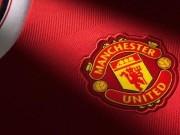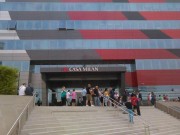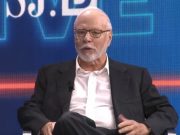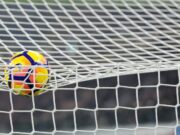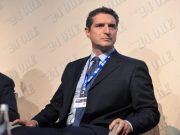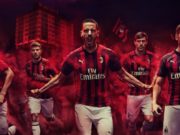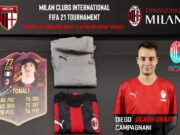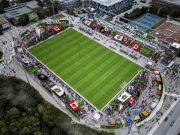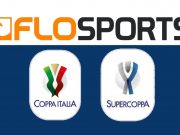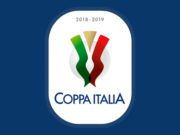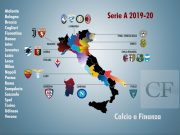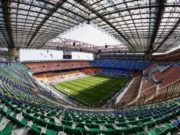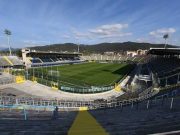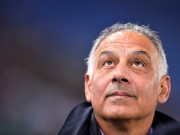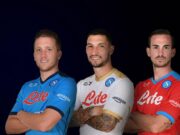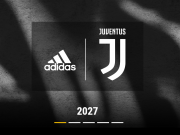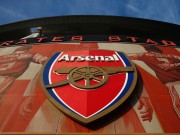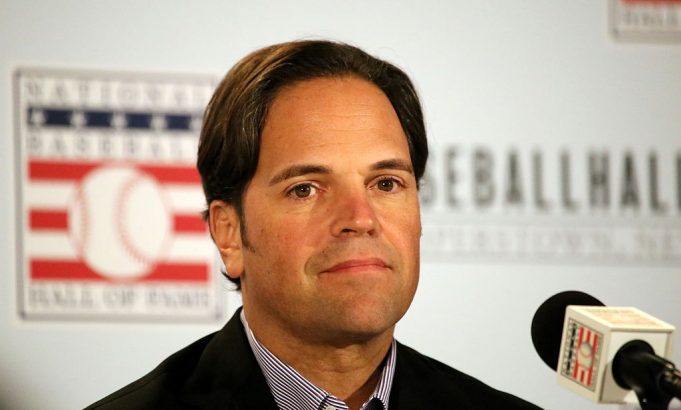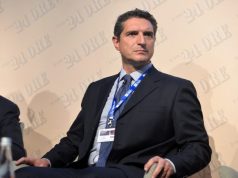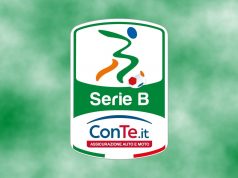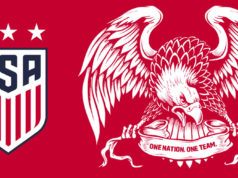Mike Piazza is a former Major League Baseball player and considered as one of the greatest hitting catchers in major-league history. He played for five different teams in his 16-year career (from 1992 to 2007). He was inducted into the Hall of Fame on July 24, 2016, an incredible accomplishment against all odds for someone drafted in the 62nd round by the Los Angeles Dodgers back in 1988.
Being of Italian descent and an avid fan of soccer, Piazza always had the idea of investing in the sport. He was approached on different occasions with several opportunities to invest in a team. Through his friend Maurizio Franzone as an intermediary, Piazza purchased a majority share (60%) of Italian third division soccer club Reggiana and became the CEO in June 2016.
Piazza’s competitive nature and willingness to get out of his comfort zone to learn new things drove him to take on this challenge. The attraction to the region, the gastronomy and giving his children an opportunity to have a wonderful cultural and life experience by living in Italy was too hard to pass up.
The difficulties at the outset did not deter him. Navigating in unchartered waters was made easier thanks to the support of his wife Alicia Rickter, his Roman Catholic faith and a hard work ethic where he puts 100% effort in all he does.
During those two years where he made the transition from player to owner, there were some highs but many lows. The struggles reached a point of no return and the club was declared bankrupt on December 6, 2018.
Calcio e Finanza caught up with the 50 year-old Piazza who reflected on his time running the club and all the hardships and adversity he went through in this exclusive interview.
You acquired a majority stake in Reggiana in 2016 with an ambitious, long term project view. Due to unfortunate circumstances this has now come to an end. Looking back at your experience, is there anything you could have done differently?
Ultimately, we were not successful because of a series of very unfortunate events from the start. Things we could have done differently? Wow, think that question sums up many unsuccessful projects, the answer is everything. First of all I will never again do business with people I don’t know and were not in the business for at least 10 years. It was at a time in my life where I wanted to build something and attempt an ambitious project. I’m sorry to say my judgement in the people I chose to attempt this with was too quick and emotional, not rational.
That being said many involved from professionals to “trusted” advisors and partners constantly delivered misinformation, half truths, and outright lies. From the first initial valuation of the club, to cash flow issues, to shifting the deal, negotiating contracts, stadium rent included, with absolutely no authority to do so. My ex partners put the club in an unrecoverable nosedive and the only salvation was promotion to the Serie B. This in and of itself would still be very difficult as the Serie B is not salvation, just a time to breath and try to sustain the club with a combination of winning, developing and selling players.
Of course I knew this would take capital, money needs to be protected though. The amount of money squandered on things off the field was significant. The money spent on the field wasn’t much better.
The first major purchase, was a 500,000 plus euro striker [Ettore Marchi, 23 games played] who not only scored no goals, but missed a penalty kick against Venice at one of our most important games of the year. We paid a striker [Rachid Arma] 45,000 euros to leave and then end up scoring 17 goals for Pordenone. We also refused a player [Ettore Gliozzi] on a free loan who went to Sudtirol from Sassuolo and scored 16 goals.
All this done by a first year Sport Director [Andrea Grammatica] who was signed (not by me) to a three year federal contract three times the league average. He had never been a Sport Director before.
After more than doubling our projected losses, my “partners” were unable or unwilling to capitalise. I alone covered the losses and decided to give it another try after making many personnel changes which cost the company tens of thousands of dollars as employment laws in Italy are extremely difficult to navigate as a non-Italian.
During your time at Reggiana you attempted to reach out to the community to support this project. What were your biggest challenges and obstacles to overcome? What more could the community have done, fans and business?
Initially the energy was fantastic as Reggiana has a very loyal and passionate fan base, and I did everything in my power to promote the project. I even went on Jimmy Kimmel and gave him a jersey of the club. I make a joke about losing money, not so funny now. Again, my partners seemed to squander most of this initial momentum, as they were unable to market the club and capitalize on this. There is a glass ceiling on what you can charge for tickets and sponsorships in Serie C. Of course playing in a Serie A stadium with Serie A rents and expenses, we could not charge Serie A prices. We had a good season ticket turnout, but the revenue was not in line with our costs. Also, we had a team of older players. We did not receive close to the maximum amount of money from the FIGC for younger players. The second year they cut the amount by €400,000.
What more could they have done? It seems the bigger companies and wealthier people in Reggio are not that interested in soccer. Remember the team last played in Serie B in 1998-99. That being said many of the sponsors were great and very supportive, but many were late in paying on time. This caused cash flow issues: as we speak we have €600,000 owed to the company which eventually have to be paid even in bankruptcy.
Unfortunately almost every year you hear of Italian clubs going bankrupt especially in the lower divisions, even those with a rich history. What makes it so difficult to run a team in Italy and how would you compare it to running a sports franchise in the USA?
Italian soccer on the business side is an extremely difficult venture for non-Italians. It truly is the “wild west”. You need to be extremely deft to survive, especially at the lower levels. Because the bigger teams do not care if you live or die. If they go bankrupt, it is a feeding frenzy for the better players and youth players. When I would go to league meetings at Serie C, many presidents would complain about the costs and many millions of euros needed to sustain a team. The league requirements are ridiculous, the taxes are crushing, many teams pay in the “black” and many cases of money laundering are prosecuted.
I think the entire system needs to be overhauled. It’s not a question that you will lose money with a competitive team, it’s a question of how much. Many teams are penalized for not paying on time to not having the required bond guarantees for salaries. In my first year many teams used a fake bond company to guarantee salaries they received no penalty and were given time to conform.
We made it to the finals my first year, the money for the entire playoffs was about €80,000 yet our expenses were more than twice that. Also, you give a big percentage of the home gate to the other team. This killed us and our revenue at home was much more significant than most of our competition and our expenses are significantly higher. During our playoff games the league takes one third of the gate as well.
Compared to the U.S it does not compare much as the U.S depends more on a league healthy philosophy. Many regional differences would be a huge hurdle in having more teams cooperate to have a healthy league. On a positive note, many of Italy’s greatest players are developed by smaller teams initially. However, if these clubs go bankrupt they lose on the development rights as we will.
Also another negative is many agents receive fees for literary doing nothing. We sold a youth player of African descent and we had to pay an agent 17,000 euros because he stepped in after the deal was brokered. We couldn’t recover the costs to develop him. He took more than half of the deal. The inability to capture revenue, and the costs to revenue gap starts a debt clock.
I am proud to say we took no bank loans, many teams do and even Serie B is not much better. Three teams went bankrupt in Serie B: Bari, Cesena and Avellino. Cesena had over 30 million euros of debt. Obviously not sustainable. The model needs to follow the same as Crotone, Empoli, and Spal. Those projects were extremely lean, with money on the field and seemingly honest and qualified people in the proper places. Success is not an accident.
What was your experience like being in Italy, an American of Italian descent? Did it impact your work in any way?
Note: Piazza’s parents were born in the town of Sciacca, Agrigento on the southwestern coast of Sicily. Growing up, Piazza was a fan of Palermo and still follows the team to this day.
Being of Italian ancestry is a source of pride and something I cherish. I wish I could have influenced the model better and brought American ideas to the table and built strategic partnerships and relationships but just could not sustain the model. I went on countless meetings to try to raise money. Did not get a great response from many investors and friends. So that told me something. Again, I really am not bitter as I sound because we did accomplish some good things.
The two years we were at Reggiana were filled with passion and emotion. Now I know why very wealthy people buy sports teams, it is a rush, and to have influenced some young people’s lives was rewarding. I do wish I could have done more; financially alone it didn’t make sense. Now my family and I have relocated to Italy full time. To have my kids studying in Italy and learning Italian is an experience they will benefit from.
Any plans for the future? Would you ever consider running another team in Italy?
Note: Piazza and his wife Alicia are the parents of three children: Nicoletta, 11, Paulina, 8, and Marco, 5.
Well like most investors I am licking my wounds and keeping an open mind. I am trying not to lose the lesson. I am taking a break from active investing as my results have not been that positive. But, I learned an amazing amount of information that Harvard can’t teach you. I feel I can also consult or give unique insight to any other groups wishing to invest in Italy. They can learn from my mistakes. Sad this didn’t work out. However, I am very grateful and will always be thankful for the experience.


